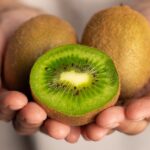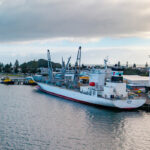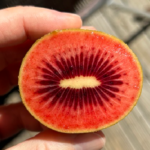NZ: Kiwifruit Claim plaintiffs confident ahead of August High Court date against MPI

The 212 New Zealand kiwifruit growers seeking compensation from the government over the 2010 incursion of deadly vine disease Psa-V are optimistic ahead of their High Court case which is due to begin on August 7.
The government estimates the disease cost NZ$885 million in losses for the industry, and the so-called Kiwifruit Claim against the Ministry for Primary Industries is calling for the biosecurity authority to take responsibility.
The issue has been contentious within the industry, but the class action's chairman John Cameron says the plaintiffs represent approximately a third of the nation's gold kiwifruit growers and under a fifth of its green kiwifruit producers.
"It is quite substantial in relation to the gold, because obviously they were the biggest losers initially as Hort16A (marketed as 'Zespri Gold') was the primary gold crop at the time," Cameron tells Fresh Fruit Portal.
"The reason fewer green growers joined the claim was that their losses were probably a lot less at the time, but Psa certainly hasn’t gone away; the yields on this year are very varied in relation to where you are, and yields are down - particularly in the green - from last year.
"There were commentators and people within the industry who weren’t encouraging people to be a part of the claim for whatever reason, but I think since that time there are a lot of people who have regretted not being part of that claim to get some accountability into biosecurity in New Zealand."
He says meetings last week between litigation funder LPF, the plaintiffs’ committee - which includes the country's largest kiwifruit grower-packer Seeka Ltd (NZX: SEK) - and the legal team was very positive about information obtained through discovery.
"We're very positive we can go to court with a positive case, definitely," he says.
"There’s been a lot of scientific work being done on all the DNA of Psa-V and strains of it throughout the world, and now we are confident that we can prove there was a breach of the biosecurity act by MPI allowing plant anthers (part of the stamen) from those regions in China to come into New Zealand.
He adds the case has no bearing on the industry's success in recovery or the efforts of Zespri to marketof the fruit overseas.
"I congratulate the industry for their continued marketing plan within the world. That’s all good, but that doesn’t take away the fact that there were losses," he says.
"Some people lost everything, some people had to increase their mortgages, some people were lucky enough to have alternative incomes, so the people that are doing extremely well are probably people who took a punt and maintain their present role in the industry.
"There’s certainly no doubt about it that land prices for kiwifruit growers are certainly extremely high, and that’s based on the belief that there are going to be potential returns continuing."
He emphasizes while all this is true, it doesn't remove the fact that the incursion cost a lot of money for growers.
"There were losses so why should anyone walk away from being responsible for those losses?
"Bear in mind that I’m also a dairy farmer and an avocado grower, and I am just hell-bent on preventing biosecurity letting down those industry as well, because I would hate – and I mean hate – to go through what we’ve been through or what other industries are going through presently," he says, in reference to the Bonamia ostreae incursion affecting oyster farmers on the South Island as well as the outbreak of myrtle rust on the North Island.













































